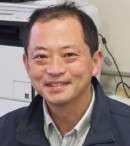

Plenary Lecture
Innovators Marketplace (R): A Gaming Approach to Chance Discovery

Professor Yukio Ohsawa
Department of Systems Innovation
School of Engineering
University of Tokyo
Japan
E-mail: ohsawa@sys.t.u-tokyo.ac.jp
Abstract: Since 2000, we have been conducting studies, workshops, and publications on chance discovery. Chance discovery is defined as the discovery of chance, rather than discovery by chance. A ``chance" here means an event/situation that can be viewed as either an opportunity or a risk - which may be ignored due to low frequency. For example, a small earthquake may be the sign of a big quake in the future. and a claim by a picky customer may point out a serious problem in a product. In both examples, individuals have to plan a scenario that is the series of future actions and events by estimating the impact of an observed event with respect to the dynamics of the real world. The discovery of chances is of crucial importance because they may have a significant impact on humans' decision in inventing and surviving the future rather than simply predicting the future - desirable effects of opportunities should be actively promoted, while preventive measures should be taken in the case of discovered risks.
By applying our original technologies of data mining/visualization to natural/social events and human behaviors in the field of commerce, the ability of individuals to externalize potential scenarios has been enhanced, contributing to beneficial strides forward in businesses - manufacturing, marketing, medicine, politics, education, policies in power plant management, etc. Overall, our methods are based on one basic principle: make a spiral process where computers and humans interact, where computers analyze/visualize data available in countable conditions and humans pay attention to interesting scenarios. In this talk, I introduce a game called Innovators Marketplace (R) we developed as a method to train and activate the spiral of chance discovery. Here, players called "inventors" create and promote ideas by combining pre-existing basic individual ideas reflecting to a map in which the computer visualized relations among existing pieces of knowledge, while others called "consumers" evaluate those ideas. This interaction is primarily an embodiment of our ten years of studies on chance discovery, a tool for aiding innovative thoughts and communications. The exchanges of voices between inventors and consumers construct and destruct new ideas about products, services, and all manner of business scenarios, sometimes involving serious conflicts - which may discourage participants in other situations. However, the positive air thanks to using games makes Innovators Marketplace a self-productive positive-feedback engine, generating power for enhancing, training, and reusing individual's thoughts and communications for innovation.
Brief Biography of the Speaker: Yukio Ohsawa is a professor of Systems Innovation in the School of Engineering, The University of Tokyo. He received BE, ME, and Ph.D in Communication and Information Engineering from The University of Tokyo, worked also for the School of Engineering Science in Osaka University (research associate, 1995-1999), Graduate School of Business Sciences in University of Tsukuba (associate professor, 1999-2005), Japan Science and Technology Corporation (JST researcher, 2000-2003) etc. He initiated the research area of Chance Discovery, and relevant series of international conference sessions and workshops. He edited books on chance discovery "Chance Discovery" (2003), "Chance Discoveries in Real World Decision Making" (2005) etc, and recently wrote "Innovators Marketplace: I Using Games to Activate and Train Innovators (Understanding Innovation" (2012). Also he edited special issues in international and domestic journals. He was in the program committee of IJCAI, editorial board of a number of interdisciplinary journals, and is the TC chair of IEEE-SMC technical committee of Information Systems for Design & Marketing since 2005. His research interests started from non-linear physics, and, via working in artificial intelligence, he initiated chance discovery and extended it to methods for innovation - applying his original methods of chance discovery and borrowing ideas from the dynamics in the real market.